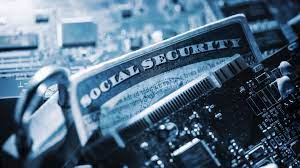The Social Security number (SSN) is a unique identifier that plays a crucial role in the lives of individuals in the United States. Introduced in 1936 as part of the fullz info Act, this nine-digit number was initially designed to track the earnings history of U.S. workers and administer benefits. Over time, the SSN has become a key component of identity verification and is used in various aspects of daily life, from opening a bank account to obtaining healthcare services.
Structure of a Social Security Number
A Social Security number is composed of nine digits, divided into three sections. The first three digits, known as the area number, represent the location where the individual applied for their SSN. The next two digits, the group number, have no specific geographical significance but were introduced to expedite the SSN assignment process. The final four digits, the serial number, are assigned sequentially and provide a unique identifier for each individual within a specific area and group.
Key Uses of Social Security Numbers
- Social Security Benefits: The primary purpose of the SSN is to track an individual’s earnings and determine eligibility for Social Security benefits, including retirement, disability, and survivor benefits.
- Employment: Employers use Social Security numbers to report wages and taxes accurately to the government. New employees are required to provide their SSN when completing hiring paperwork.
- Financial Transactions: Banks and financial institutions often require an individual’s SSN when opening accounts, applying for loans, or conducting certain financial transactions. This helps verify identities and comply with anti-money laundering regulations.
- Government Programs: Various government programs and agencies use SSNs for identification purposes, such as applying for a driver’s license, receiving public assistance, or participating in federal programs.
- Healthcare: Healthcare providers use SSNs to manage patient records, process insurance claims, and verify eligibility for certain medical services.
Security Concerns and Identity Theft
While the SSN serves many essential functions, its widespread use has led to concerns about identity theft and fraud. The unique nature of the SSN makes it a valuable target for criminals seeking to commit identity theft, as gaining access to someone’s SSN can provide a gateway to personal and financial information.

